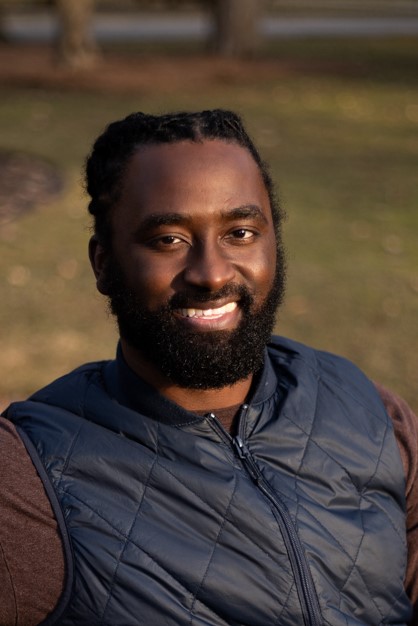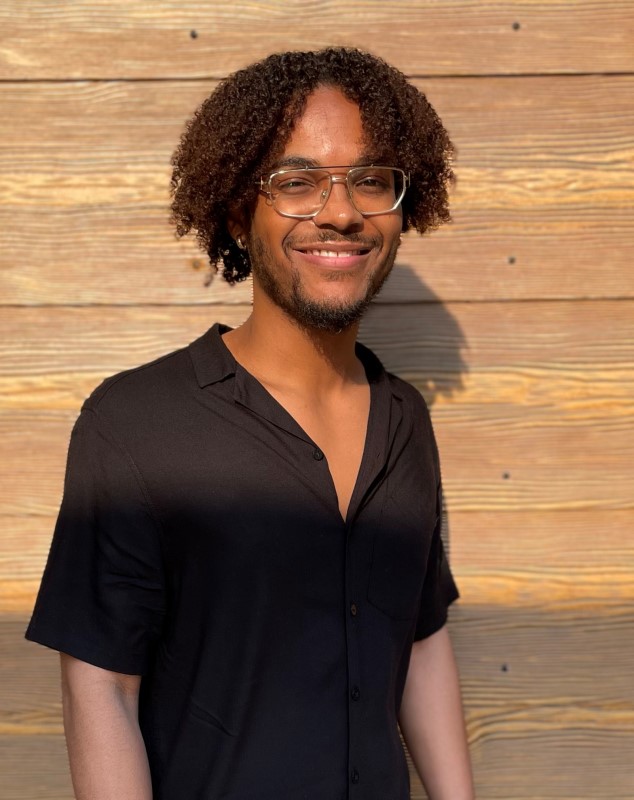Two professionals embrace new opportunities on path to graduate degrees in social work
A graduate degree can boost your earning potential. It can ease your transition to a new career. Or maybe you’re a passionate learner with a knack for research. There are several reasons people choose graduate school.
For Javon Reese, it meant a new beginning. Reese earned a bachelor’s in biology at Eastern Michigan and later applied to their physical therapy program but did not get in. Instead, he took a position at the Eisenhower Center in Ann Arbor working to rehabilitate clients who had suffered traumatic brain injuries. He would work there for nine years before deciding he wanted more.

His wife Akelah Reese, the assistant director of multicultural student leadership engagement for the Office of Multicultural Student Engagement and a doctoral student at Wayne State University, had earned her bachelor’s from Eastern Michigan in social work and encouraged him to consider the discipline.
“A lot of what she talked about I was already implementing with my patients anyway,” Reese said. “But social work seemed so different from biology. That’s when I found the joint Master in Social Work and Public Health at WSU. The public health aspect seemed to match my comfort level.”
He started taking classes toward his graduate degree and began an internship at Black Family Development, a nonprofit family counseling agency in Detroit, that turned into a full-time position as a suicide prevention coordinator.
But it’s not all work, no play. In his free time, he gardens.
“Ultimately, what I want to do is work with community gardens and implement safe and healthy food choices in underserved communities, so the health determinants that are in those neighborhoods can decrease.”
He started his own plot at home to conduct research.
“My mom passed away from a heart attack. My dad passed away from complications from diabetes. I think those outcomes ultimately boil down to choices in what we ate as a family growing up.”
Community gardens are a self-sufficient source of nourishment and education for neighborhoods, Reese said. They feed the homeless when there’s excess, and keep kids who are out of school for the summer months busy.
“It’s the human service component that appeals to me,” he said.
Perhaps then it’s no surprise that Reese hopes to foster a career that will allow him to work one-on-one with people, too. As a former EMU football player, the intersection of sports and mental health is particularly important to him.
After graduation, Reese experienced a sense of loss and said EMU could have been more proactive in helping student-athletes turn their focus to their careers.
“Treatment and therapy to help you redefine yourself are necessities for recovery, so I’m glad I’m learning that interpersonal aspect in social work.”
Reese said it feels impossible for him to choose between macro and micro social work. He wants the best of both.
“I think working directly with athletes could be my micro, and my vision for community nature and nurture through gardening my macro.”
Exploring the big “what ifs”
Reese met fellow social work student Devon McCoy while they were both interning at Black Family Development.
McCoy also entered college in a discipline different from that which he now studies for his graduate degree. He graduated from Michigan State University in 2018 with a bachelor’s in psychology.

He went on to work with inpatients who suffered from substance abuse. There his peers lauded his ability to connect with clients and lift them up in their most dire moments of need. A few even suggested he pursue a future in social work.
“I thought it was a way to improve how I did therapy. A way to connect with clients on a deeper level.”
It wasn’t until McCoy took a position as a data assistant for the Center for Behavioral Health and Justice in the School of Social Work at WSU did he realize he could do so much more.
“I realized I love working with data and research. That there’s a bigger picture. Issues that need fixing before clients ever seek out help.”
The macro side of things, he said.
This past January, McCoy had the opportunity to present his research on jail-based mental health services at the 2023 Society for Social Work and Research Annual Conference.
“I tracked an intervention that provided resources to inmates with mental health or substance use issues and studied whether the intervention impacted their potential for recidivism.”
The experience provided a level of unparalleled exposure, McCoy said.
“I got to be around professionals who already have doctorates, people in the field who are conducting research, people who already have made names for themselves. It got me that much more excited to delve into research.”
McCoy is considering turning that passion into a Ph.D.
“I think I am someone who has been tremendously blessed with opportunities that have helped me recognize where I want to take my career,” McCoy said. “I want to help people recognize in themselves things they don’t yet see, because I never really saw my life headed in the direction it is now. Not until others empowered me.”